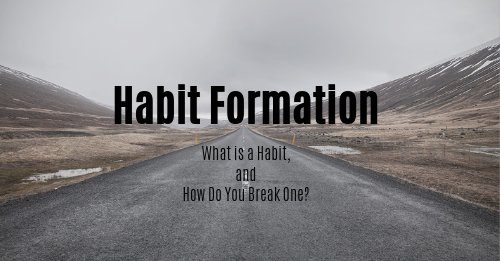Do you have a bad habit you can’t seem to break? You’re not alone. Nearly everyone does, and it takes longer than you might think to change. The best thing you can do is acknowledge that you need help and actively take steps toward your Recovery.
What Is a Habit?
A habit is something you do repeatedly — usually without thinking about it — that would be hard to give up if you had to go without it. Some common examples include:
- Biting your nails
- Chewing or picking at your hair
- Overeating
- Bouncing your legs
- Cracking your knuckles
Bad habits can range from small behaviors to addictions that are outright dangerous to your health and well-being, like smoking, drinking alcohol or gambling. Because of their physical side effects and the mental changes they produce, addictions are often harder to break.
How Habits Are Formed
Habit formation can be broken down into three parts:
- Cue: Something in your environment — like your location, thoughts, emotional state or the people around you — tells your brain to go into an “automatic” mode.
- Routine: You perform the behavior itself.
- Reward: Your brain enjoys some part of the behavior — like the attention, excitement or pleasure it brings — and stores this information away to remember in the future.
As this cycle repeats, the process becomes harder to break.
How Long Does It Take to Break a Habit?
Since the 1960s, self-help experts believed a habit took precisely 21 days to break. However, new research shows that breaking a habit takes an average of 66 days, and individual results in the study varied from 18 days to more than 250. Clearly, habit-breaking is a more personal and ongoing process than we once thought.
Tips for Breaking a Habit
Learning how to manage an annoying or harmful habit is the first step in regaining control of your life. Some of the best tips on how to break a habit include the following:
- Figure out what’s causing the habit: Do you notice yourself reaching for a cigarette as soon as you get home from a stressful day at work? Or maybe you feel an urge to gamble every time you drive past your favorite casino. By identifying these underlying triggers, you can work on avoiding them or finding new ways to cope with the situation.
- Replace the bad habit with a healthy one: It’s far easier to break a bad habit if you can respond to a situation with a better one. For example, if stress is causing an urge to drink, you could try meditating instead. Or, if you tend to overeat when you have junk food in the house, replace your unhealthy snacks with healthier options.
- Believe you can change: Your mindset is one of the most powerful tools you have for battling your bad habits. If you believe in yourself and visualize yourself succeeding, you’ll become more likely to actually succeed.
- Seek help: Some habits and addictions can be too powerful for us to overcome on our own. Rather than struggling with feelings of hopelessness, join forces with a friend, therapist or support group like Alcoholics and Narcotics Anonymous that can hold you accountable and help you celebrate your successes.
How 7 Summit Pathways Can Help
One of the most harmful habits to your health and well-being is drug or alcohol use — which can quickly transform from an occasional activity to an overpowering addiction. Many people feel ashamed and overwhelmed by their desire for alcohol or drugs but aren’t sure where to turn for Recovery. If you’re looking for a helping hand, remember that 7 Summit Pathways is here for you. We offer a holistic, evidence-based treatment approach designed to help you enjoy lasting freedom from your drug or alcohol use.
To learn more, contact us online or schedule an appointment at our Tampa, FL, facility.

